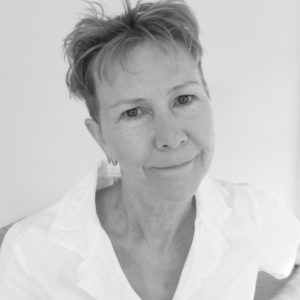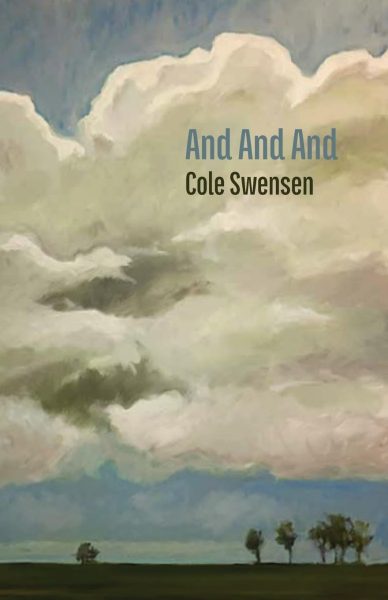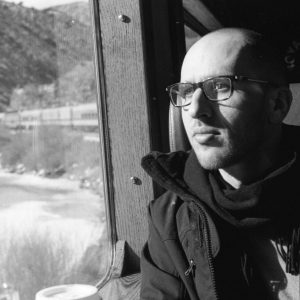Cole Swensen talks nano-essays, mechanical pencils, development in the French countryside, and the soul with editorial assistant Jake Friedman.
 Cole Swensen is the author of nineteen books of poetry. A former Guggenheim fellow and winner of the National Poetry Series, recipient of the Iowa Poetry Prize, the San Francisco State Poetry Center Book Award, and the PEN US Award for Poetry in Translation, she divides her time between France and the United States.
Cole Swensen is the author of nineteen books of poetry. A former Guggenheim fellow and winner of the National Poetry Series, recipient of the Iowa Poetry Prize, the San Francisco State Poetry Center Book Award, and the PEN US Award for Poetry in Translation, she divides her time between France and the United States.
Jake Friedman: The first thing that can’t help but be noticed or observed in your poems, I think, is their formal presentation, the fact that they’re “prose.” You’ve made a few comments on this before, in an interview with Aaron LoPatin, how “people expect prose to be factual and poetry to be somehow opposite—whatever that might be—when in a sense poetry is much more factual because it is its own fact . . . constituting its own world, of which it is the fact and necessarily true.” I would imagine, following Rob McLennan’s review of And And And, that this is something you’ve been continuing to think through, too. Even so, I was wondering whether you might be able to speak briefly to your feelings or theories on this: the specific thoughts and decisions you made in writing these poems—what the generation or gathering of material looked like, what their process was for being shaped and formed—as well as any general thoughts on lineation you’d like to offer—what kind of power or directionality it may exert over the reader, and any attendant awareness or risks.
 Cole Swensen: While I still agree with what I said to Aaron in that interview, the prose poems I’m writing now are perhaps different in that they are angled more toward the essay, which is to say that they say things. They make statements that could be put to the truth test, that could be said to be right or wrong—and many of them are blatantly wrong. These pieces and those in my latest book, And And And, play with a kind of absurdism that is perhaps a reflection of the utterly absurd state of the world, yet emotionally turned upside down—emotionally playful rather than terrifying and tragic. That inversion is an act of optimism, of forced optimism, as there’s no reason for anyone to be even slightly optimistic at this point but I think we need it if we’re going to keep up sufficient spirit to address the many global disasters. Of course, we need a lot more than optimism, but so much of what we need is beyond our control, but thinking positively is not—these pieces try to do that, while also acknowledging that the very idea of positivity is absurd.
Cole Swensen: While I still agree with what I said to Aaron in that interview, the prose poems I’m writing now are perhaps different in that they are angled more toward the essay, which is to say that they say things. They make statements that could be put to the truth test, that could be said to be right or wrong—and many of them are blatantly wrong. These pieces and those in my latest book, And And And, play with a kind of absurdism that is perhaps a reflection of the utterly absurd state of the world, yet emotionally turned upside down—emotionally playful rather than terrifying and tragic. That inversion is an act of optimism, of forced optimism, as there’s no reason for anyone to be even slightly optimistic at this point but I think we need it if we’re going to keep up sufficient spirit to address the many global disasters. Of course, we need a lot more than optimism, but so much of what we need is beyond our control, but thinking positively is not—these pieces try to do that, while also acknowledging that the very idea of positivity is absurd.
The prose poem form in the manuscript these pieces are taken from, Veer, comes out of And And And, which I wrote in response to an invitation to do a series of essays on poetics. I didn’t want to do a collection of standard academic essays and found myself instead working in a “nano-essay” form—20 to 200 words. After that book, I wanted to apply the same nano-essay approach to objects and animals, and while these are more classically prose poems, I still think of them as nano-essays—that seems to leave more room for statement, again often clearly ridiculous or impossible, echoing the bombardment of fake news and the outrageous misuse of language that surrounds us.
JSF: Your first poem, “A Pencil,” presents a playful, meta-poetic meditation on the materiality of our compositional processes, a metaphysics of creative media. On the one hand: the mineral solidity of the pencil, which creates gravity, which attracts ‘exactitude,’ and provokes questions of accuracy and tracking—how many miles the writer has written in their lifetime, how many acres the artist has drawn. The gravity, then, extending into dimensions of space-time, inviting this desire to map, perhaps even to remember. Indeed, raising a further question about the fundamental relationship between art and nature, representation and reality—what this reference consists of, how closely they align, if it all, whether presence is even possible in the first place. All of which, I think, is deepened through what I think is a subtle allusion to Borges’ short story, “On the Exactitude of Science”—this misguided, imperial desire for exact scale and correspondence, a map the same size as its territory, eventually abandoned by its descendants to weather in the desert, now tattered remains.
The pen, then, emerges as a different medium, something softer, more imagistic, more fluid—a piece of our primordial, oceanic origin. That, more importantly, doesn’t seem to create this kind of mediated self-consciousness. For where the wielder of the pencil questions their past, time, their own subjectivity, the wielder of the pen knows this is only an illusion, that there is no subjectivity to begin with–that where others see a boat being rowed and imagine a ghost, there is only an object, there is only the wind.
All of this being said, I would offer a few questions. First, I’m curious about how typing or screens might fit into this typology—what it means when we hook into the system, when we look into this strange blue illumination, when we substitute a more holistic grip for individual fingertips—what kind of ontology or image this technology would be. I find myself interested, too, in the role of paper and the page—how it fits in as the absorber, as the negative space. Indeed, even the material histories of graphite versus ink—both as carbon products, key ingredients of climate change akin to all life—but where graphite is something rockier, a precursor of diamonds, the ink is more incendiary, an animal nature, a bone and lampblack burn. I feel like there may be a connection somewhere in here to your concern with earthworks, too. And of course, I just have to ask, are you pencil or pen, do you have a favorite brand, and why.
CS: I’ll answer the last question first—I always write in pencil, and always with a 0.5 mechanical pencil with an H or harder lead. The hardness of the lead depends upon the paper—the softer the paper, the softer the lead. Over the years, I have used any number of brands—as long as they’re simple, streamlined, black, grey, or white … I almost always write the first draft of a poem long-hand, in pencil, and as I was writing that poem, it struck me to wonder how long the line would be if everything I’d ever written in pencil were straightened out at joined end to end. I love your connecting the piece with Borges’—I love that piece of his, but hadn’t thought of it for years, decades even—so there is no subtle allusion in my piece, but a lot of sheer delight in going back to the Borges—and yes, the two ideas do seem to be talking to each other.
Regarding representation, I was thinking about the visual equivalent of the question of whether we’re speaking language or language is speaking us—i.e., is art manipulating us in order to create itself? It’s a ridiculous question, in line with the absurdism mentioned above.
And that goes for the pen, as well—I’d never thought about it before I was in the middle of that poem, but the difference between our two principal modes of writing boils down simply to the difference between a liquid and a solid. And immediately, that difference seemed enormous and with huge ramifications.
But the ghost really is rowing the boat—though not everyone on shore can see it. Regarding the issues of self-consciousness and subjectivity—or the lack of it—those are really interesting and really intricate readings, though not ones I would have made myself. I would say that there is no psychological dimension to my work—though that might be impossible, and I might not be the one to say—but I think of this piece and of most of these as literal and entirely based in materiality. Your thoughts on the role of paper as absorber and as negative space along with those on graphite versus ink and their various origins—these are all quite in line with what was in my mind—and you’ve expressed it all really well.
JSF: “A Pencil,” I think, is a relatively discursive poem, that articulates a kind of Buddhist or material subjectivity—almost an ars poetica—a world not so much without soul so much as the soul being simply another object within it. “Sky & Sky,” on the other hand, takes a different turn, a swerve, something more imagistic, and almost koan-like in its juxtaposition of imagery—the bird in flight swiftly diving into the crossing guard opening an umbrella over a five-year-old. Here, the bird feels infused with transformative, amorphous potential—it could do anything, and does.
In their review of And And And, Dan and Kristy Beachy-Quick speak to how your book “invites the most generative kind of thinking, an active reading that sets the mind roaming from this to that, asking what words might be doing in us and to us.” Indeed, perhaps it is less the bird as an animal that has this potential and more the language we imbue it with. Perhaps we even make a mistake in assuming there’s a bird at all here, that we have fallen into some bad habit, some treachery of image—that there is any world within the poem at all besides language itself—that your work is trying to break us out of, to help us see.
They speak further, too, of how wind, in their interpretation of your work, seems to function as a kind of grammar, a directionality. In their quotation of your own words, “a syntactical model of forward momentum that is yet constantly fissured with infinite, infinitesimal lateral propensities.” That, if the work here is, as they put it, “is returning us to a kind of first poetics,” it is a kind of perception or attention to language itself, a critical epistemology with liberatory potential. That the bird, then, becomes a rider of grammar—the word itself, perhaps even ourselves. Somehow, this feels like a question to me.
CS: Again, you’ve given this an amazingly nuanced reading—thank you so much for that. To begin with the notion of soul—for me, we’re definitely not in a world without soul—though soul is a concept so outside our actual grasp! But I feel we’re a world in which everything is soul—the world as soul. But more specifically re this poem, juxtaposition seemed very much the core. And for me, it’s the weather that could do anything, and then does—such as, in this case, rain. So, for me the juxtaposition was that of the enormous could-do-anything sky/weather and a small, mundane, loving gesture—that they’re exactly equal. The soul of the world feels exemplified in that.
JSF: For this last question, which is more personal, I was thinking about your biography, how you divide your time between France and the United States, how my partner and I just took our first international trip to Paris and Marseille this summer, how widely it opened our eyes to things, how clearly it revealed the logic and design of a country, how its spirit is made manifest in physical construction. It was so easy to get around Paris. I could leave the high ceilings of my cousin’s apartment and walk around the corner to get fresh fish, fresh fruit, fresh bread, fresh pastries, just a euro or two each. And then to come back to Fort Collins, to walk through the police borders of the Denver airport, take an hour drive up I-25 home, and from there ten minutes in the car to get a processed bagel for $8.00 the next day. Like it’s one thing to read critical theory, to know what one is abstractedly missing. It’s another thing to be confronted and feel it. Which is to say, I feel divided. I know you’ve spoken a little bit about this before, in an interview with Maria Anderson at the Rumpus—your habits of walking, this idea of transportation speed. And of course, there’s the lineage of the dérive. And so, my question would be, could you talk about your tethers between these two countries? Or, what do you feel when you move between France and the United States, and how this informs your poetics?
CS: Again—you’ve put it beautifully! It’s a radically different definition of life. And a lot has to do with timing—though it’s obvious, I’ll state it anyway—France, and all the main European urban centers, were developed long before the automobile, and they continue to have a density and homogeneity—shops, markets, parks, and housing all blended in together—that allows a person to have a life at their fingertips—easy to walk through, dense enough to make public transportation really work, etc.
Whereas the US was largely developed around the car, based on the illusion that territory was endless and resources unlimited. And no one seems to have foreseen the immense isolation it would incur—that the car is a box that cuts you off, that a yard and a fence do exactly the same, and so on. So, for all the reasons that you mention, I find life in France more reasonable, more doable, than life in the US—and through a series of moves necessitated by jobs, I’ve always chosen the new dwelling with an eye to walkability and minimal driving.
That said, life in the French countryside has changed dramatically over the past fortyish years because now everyone has a car, and it’s cheaper to get things at the Auchan twenty miles away than it is to support the local baker, stationer, greengrocer, etc. It’s tragic; it’s making ghost towns of rural French villages.
As I’ve been spending several months a year in France for the past thirty-five years, though I can’t put my finger on how it informs my poetics, I’m sure that it does. And one of the major ways is through translation. I always translate living authors, so translation is a conversation, and it’s a conversation about poetics, and I know that that has influenced me very much over the past thirty years. In addition, I translate the same people again and again, so I have the voices of five or six writers embedded in my brain, and though I’m not consciously aware of the effect of their voices on my work, I know that it has had a deep one.
 Jake Friedman (he/him) is a poet, editor, and culture worker currently based in Fort Collins, CO. For the past ten years or so, he lived and worked in Phoenix, AZ, where he engaged in a variety of literary things. He has a few small but meaningful creative writing accomplishments, unmentioned here. He also identifies as a documentary poet, whatever that means. He is currently pursuing an MFA in Creative Writing for Poetry at Colorado State University. He lives in Fort Collins with his partner, their unborn child, four to five other people, a dog, and two cats.
Jake Friedman (he/him) is a poet, editor, and culture worker currently based in Fort Collins, CO. For the past ten years or so, he lived and worked in Phoenix, AZ, where he engaged in a variety of literary things. He has a few small but meaningful creative writing accomplishments, unmentioned here. He also identifies as a documentary poet, whatever that means. He is currently pursuing an MFA in Creative Writing for Poetry at Colorado State University. He lives in Fort Collins with his partner, their unborn child, four to five other people, a dog, and two cats.